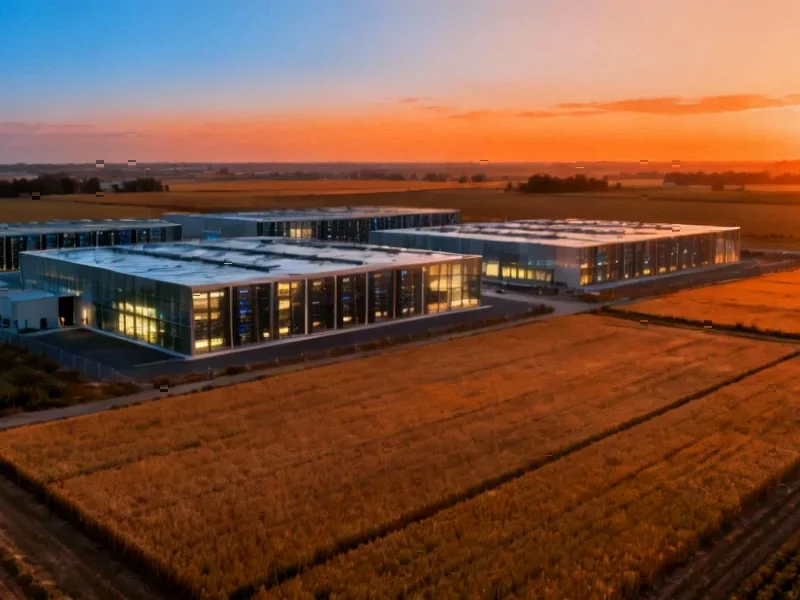According to DCD, Lincoln Property Company has reacquired a 191,000-square-foot data center at 2500 W. Frye Road in Chandler, Arizona, marking the second time the company has owned this facility. The 28MW property sits on 14.5 acres and features four data center halls, with one currently leased to a Fortune 500 enterprise customer. Lincoln plans to convert the remaining three halls to add 16MW of capacity and transition the cooling system from evaporative to air-cooled, targeting initial delivery of 4.2MW by early Q1 2026. The company previously owned the facility from 2018 to 2019 before selling it to CBRE for $72.7 million. This strategic reacquisition highlights several critical trends in today’s digital infrastructure market.
Arizona’s Unprecedented Data Center Demand
The Phoenix metropolitan area has emerged as one of the nation’s hottest data center markets, driven by several converging factors. The region offers abundant land, reliable power infrastructure through utilities like Salt River Project, and favorable tax environments that attract major hyperscale operators. More importantly, Arizona’s dry climate provides natural cooling advantages that significantly reduce operational costs compared to humid regions. What makes this particular acquisition noteworthy is Lincoln’s explicit mention of “record low” vacancy rates – a clear indicator that supply cannot keep pace with demand from hyperscale, enterprise, and emerging neocloud users.
The Strategic Value of Reacquisition
Lincoln’s decision to repurchase a property it previously owned and sold reveals sophisticated portfolio management strategy. In commercial real estate, reacquiring former assets typically indicates either significant undervaluation at time of sale or substantial improvement in the asset’s fundamental value proposition. The fact that Lincoln is willing to buy back this facility at what’s likely a premium to their 2019 sale price suggests they see substantial upside in the current market conditions. This move also demonstrates the company’s confidence in its ability to execute value-add improvements, particularly the mechanical system conversion and capacity expansion that will nearly double the facility’s available power.
The Cooling System Transition Significance
Lincoln’s plan to transition from evaporative-cooled to air-cooled mechanical systems represents a strategic response to growing water scarcity concerns in the Southwest. As Arizona faces ongoing water management challenges, data center operators are increasingly moving toward air-cooled systems that reduce dependency on water resources. This conversion not only addresses environmental sustainability concerns but also future-proofs the facility against potential water usage regulations or restrictions. The move aligns with broader industry trends where operators are prioritizing water conservation alongside energy efficiency, particularly in drought-prone regions.
Competitive Landscape Implications
This transaction occurs against a backdrop of intense competition for quality data center assets in strategic markets. With CBRE research consistently showing constrained supply in primary markets, well-capitalized operators like Lincoln are aggressively pursuing opportunities to add inventory. The fact that this facility offers “immediately available utility power” – increasingly rare in constrained markets – provides Lincoln with a significant competitive advantage. As development timelines for new data centers stretch to 24-36 months due to supply chain and utility interconnection challenges, assets with ready power capacity become increasingly valuable.
Market Outlook and Future Development
The approved expansion potential for this site positions Lincoln to capitalize on sustained demand growth. With Chandler having already approved additional development as part of CBRE’s earlier agreement, Lincoln inherits a valuable development pipeline without the typical municipal approval delays. This creates a strategic advantage in a market where speed-to-delivery increasingly determines competitive positioning. As enterprise digital transformation accelerates and AI workloads demand more infrastructure, facilities like this Chandler property will continue to attract premium valuations from operators and investors alike.




